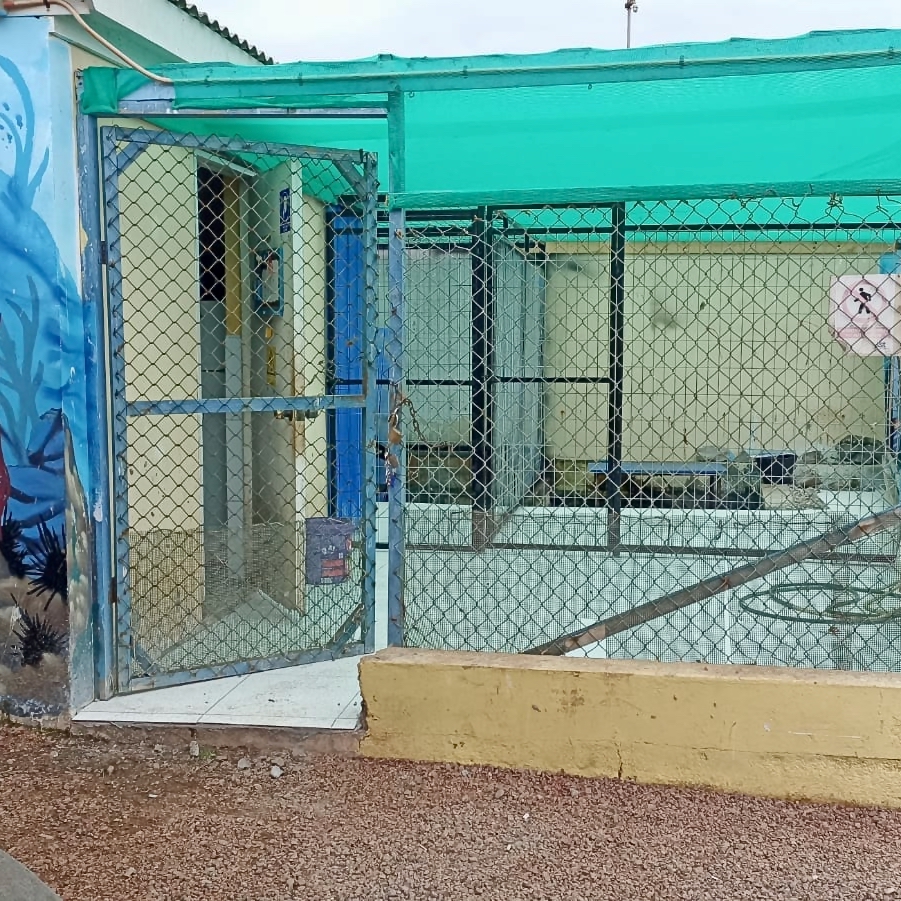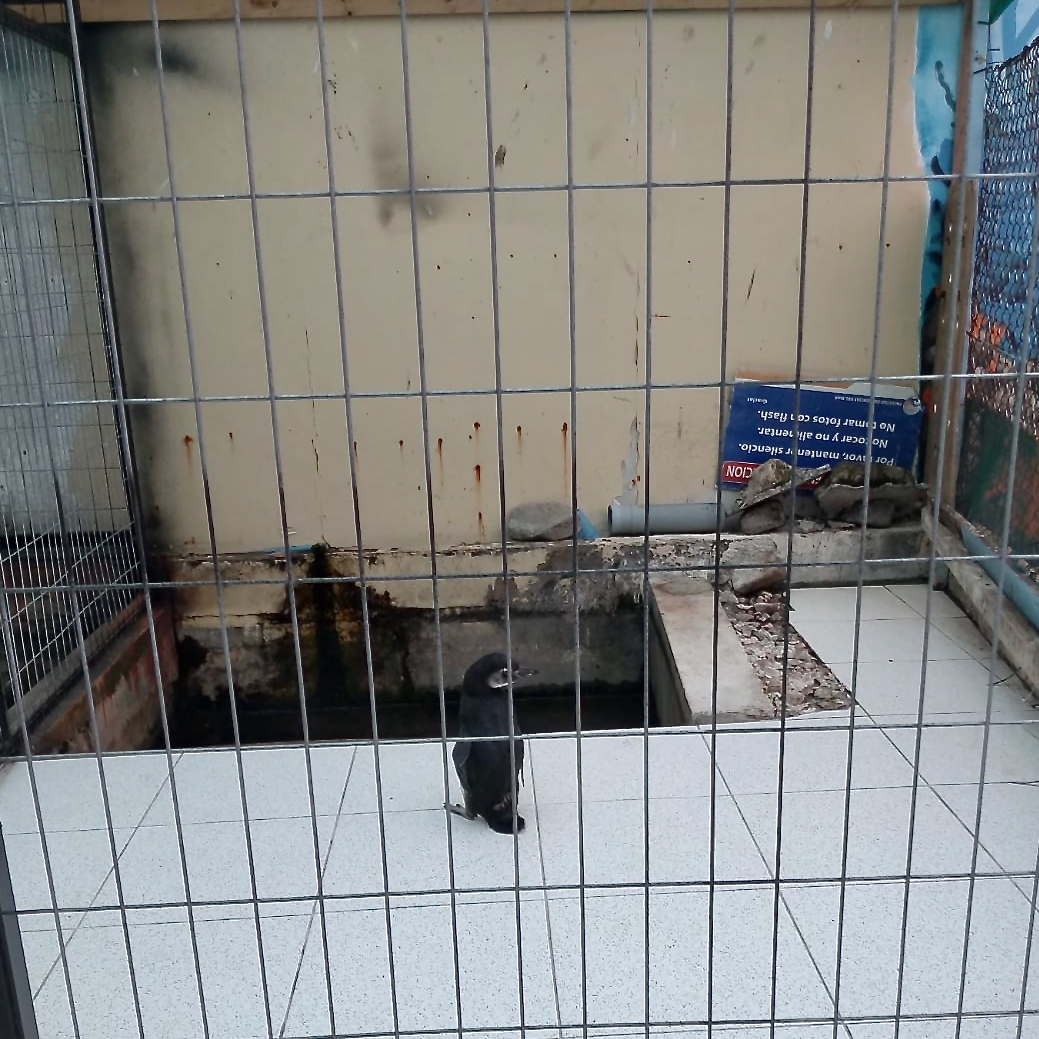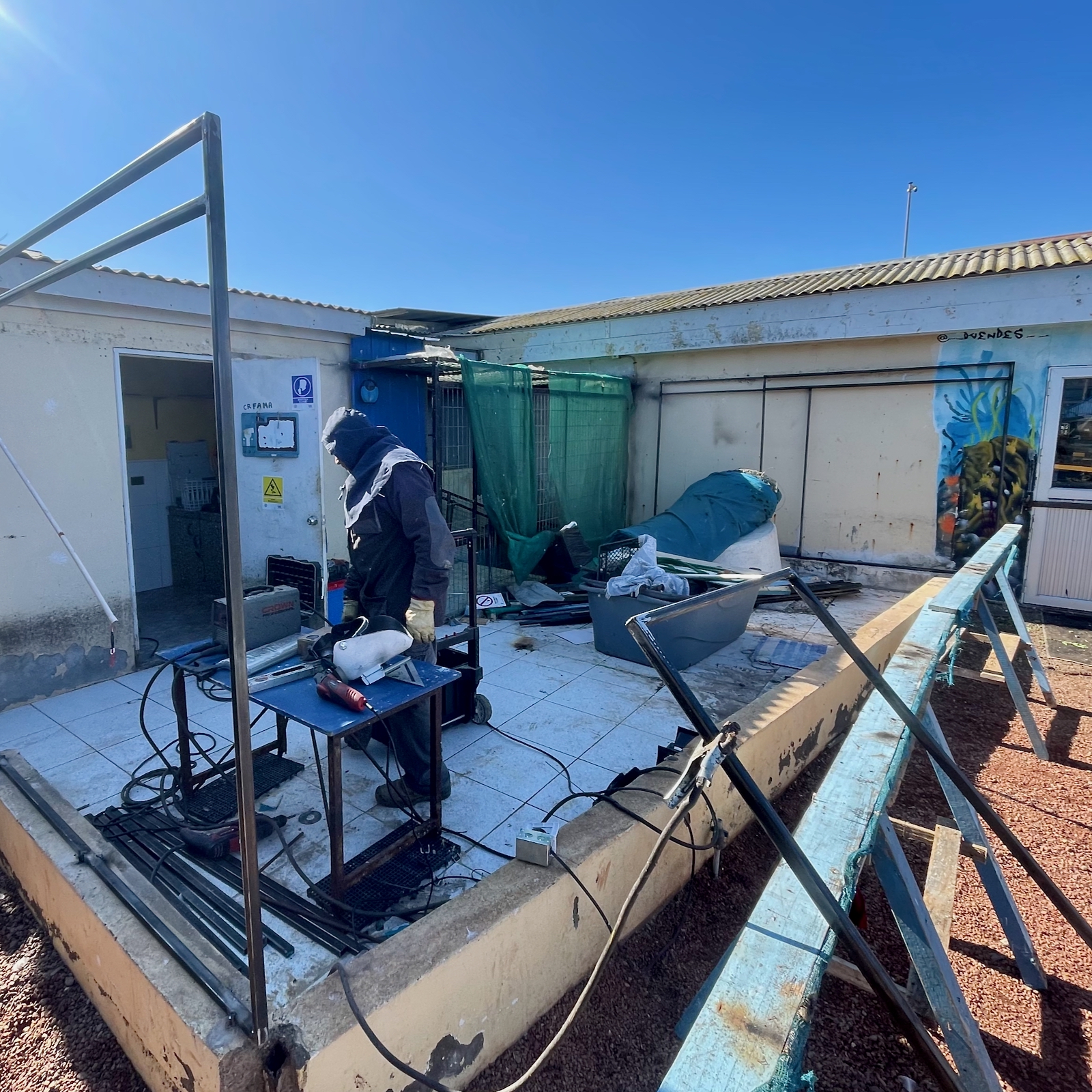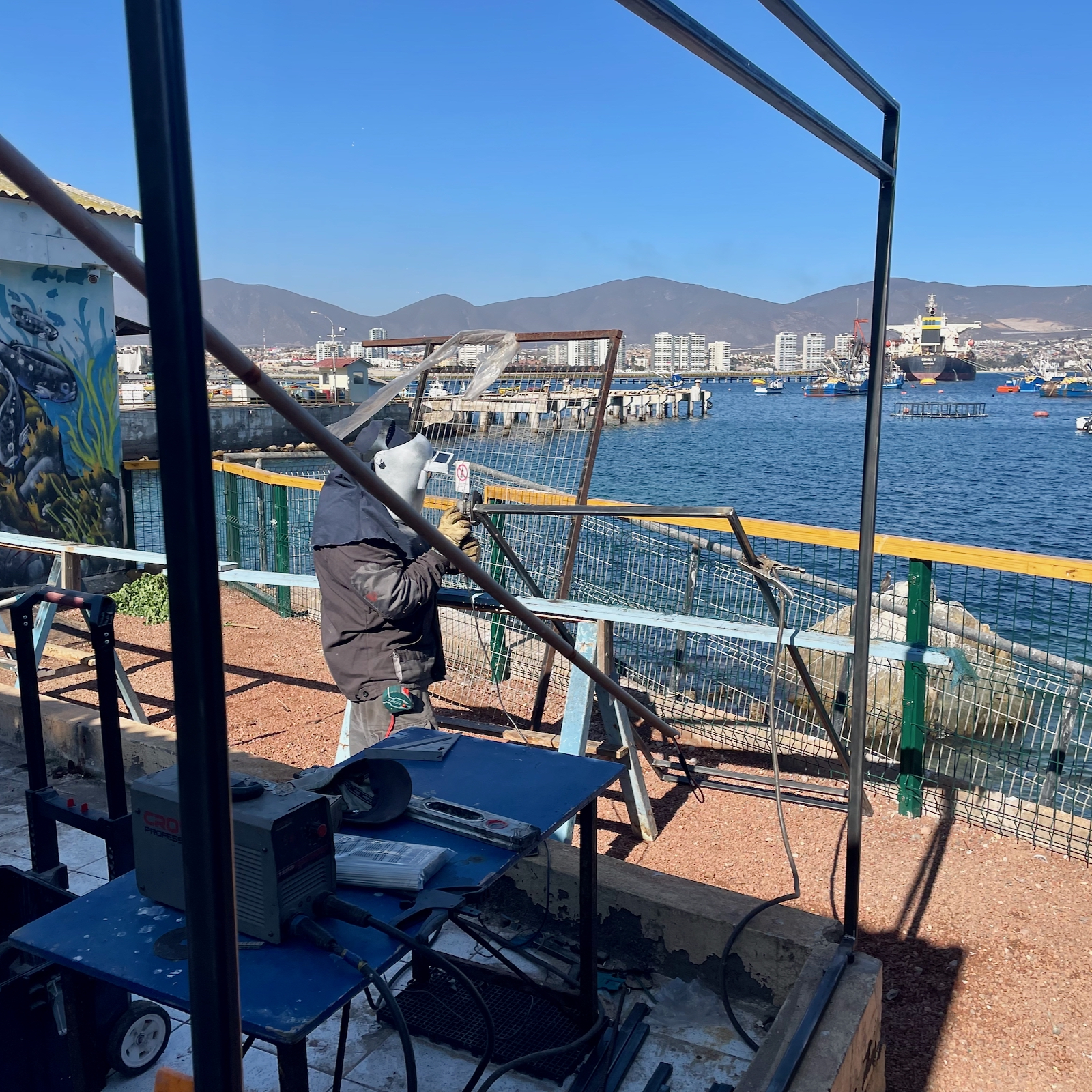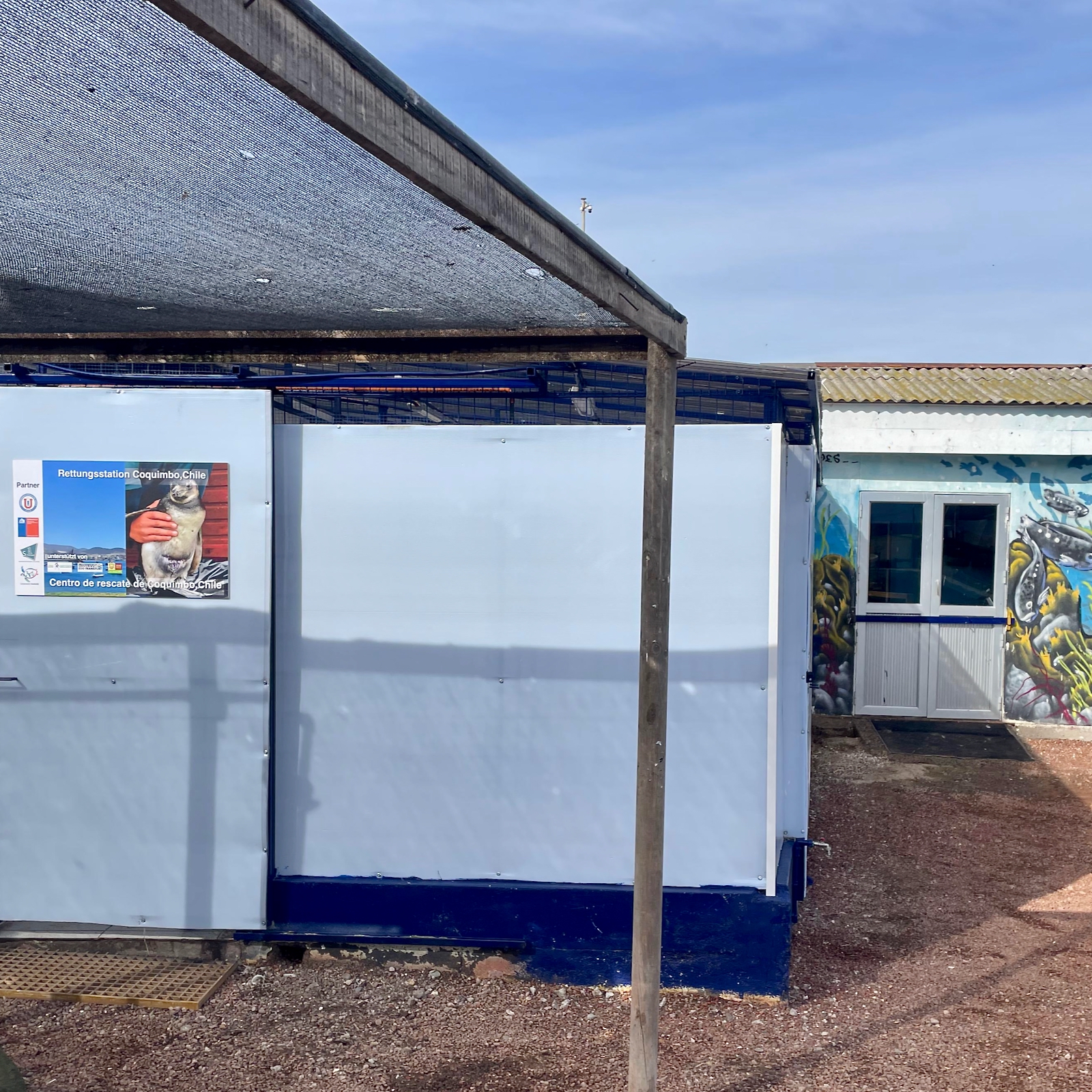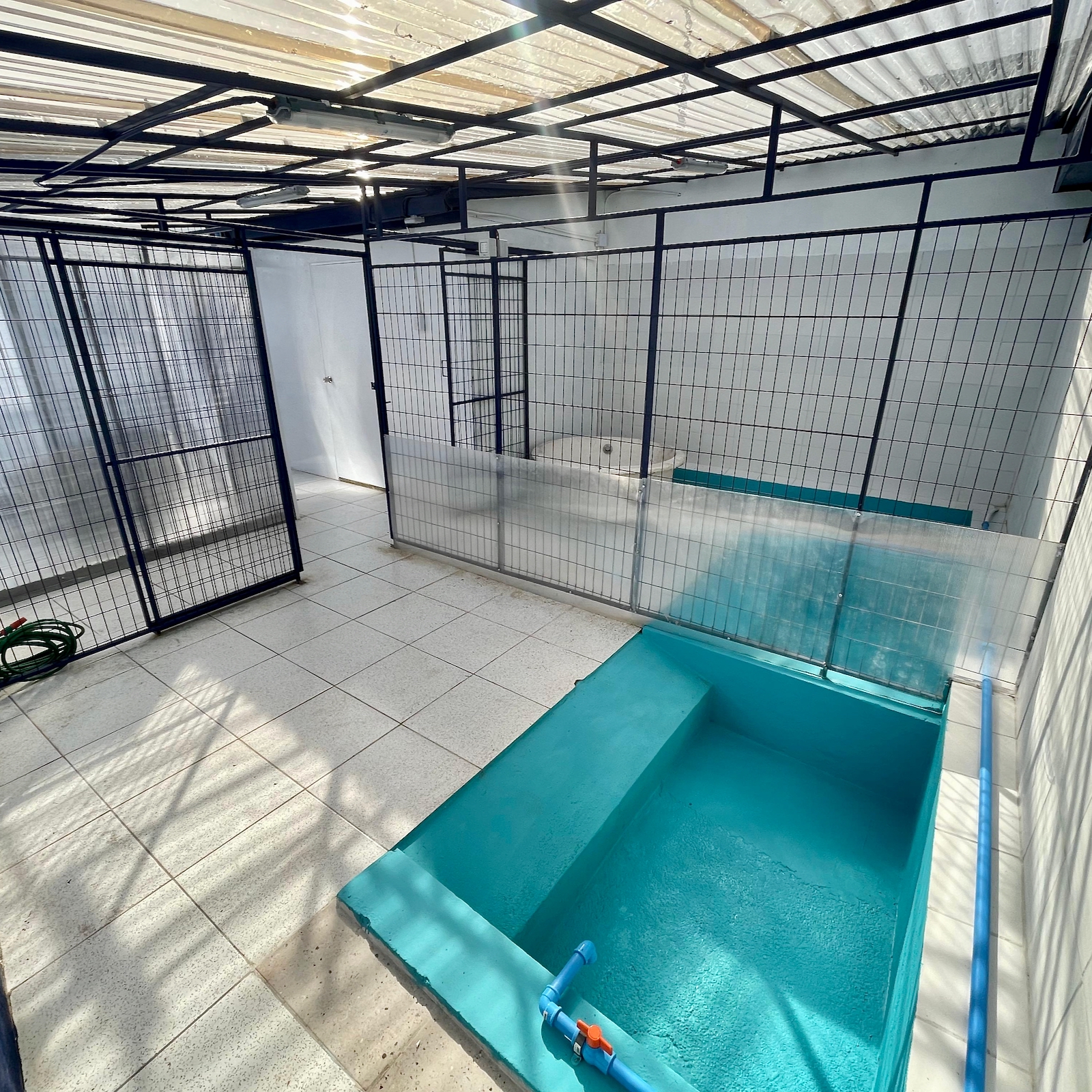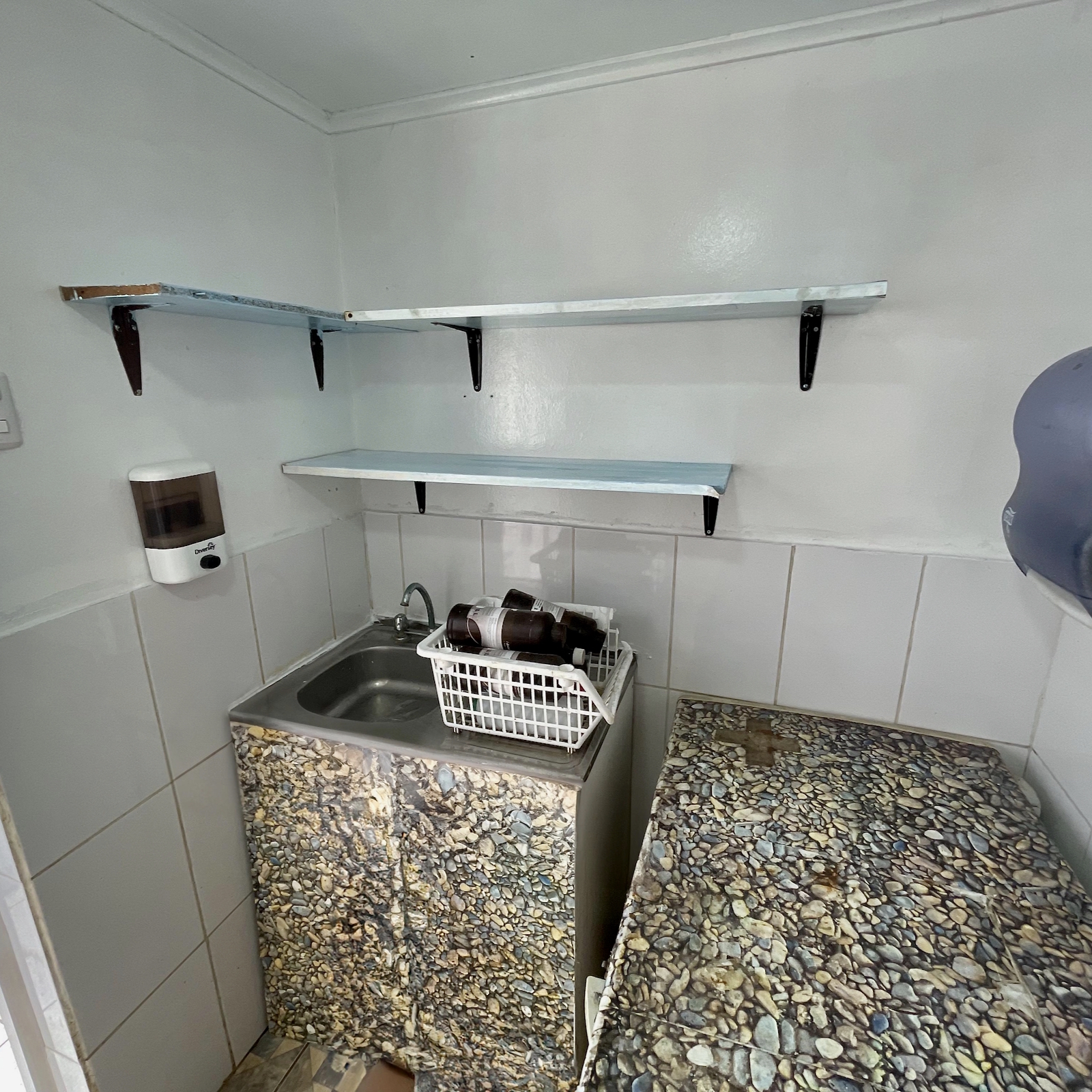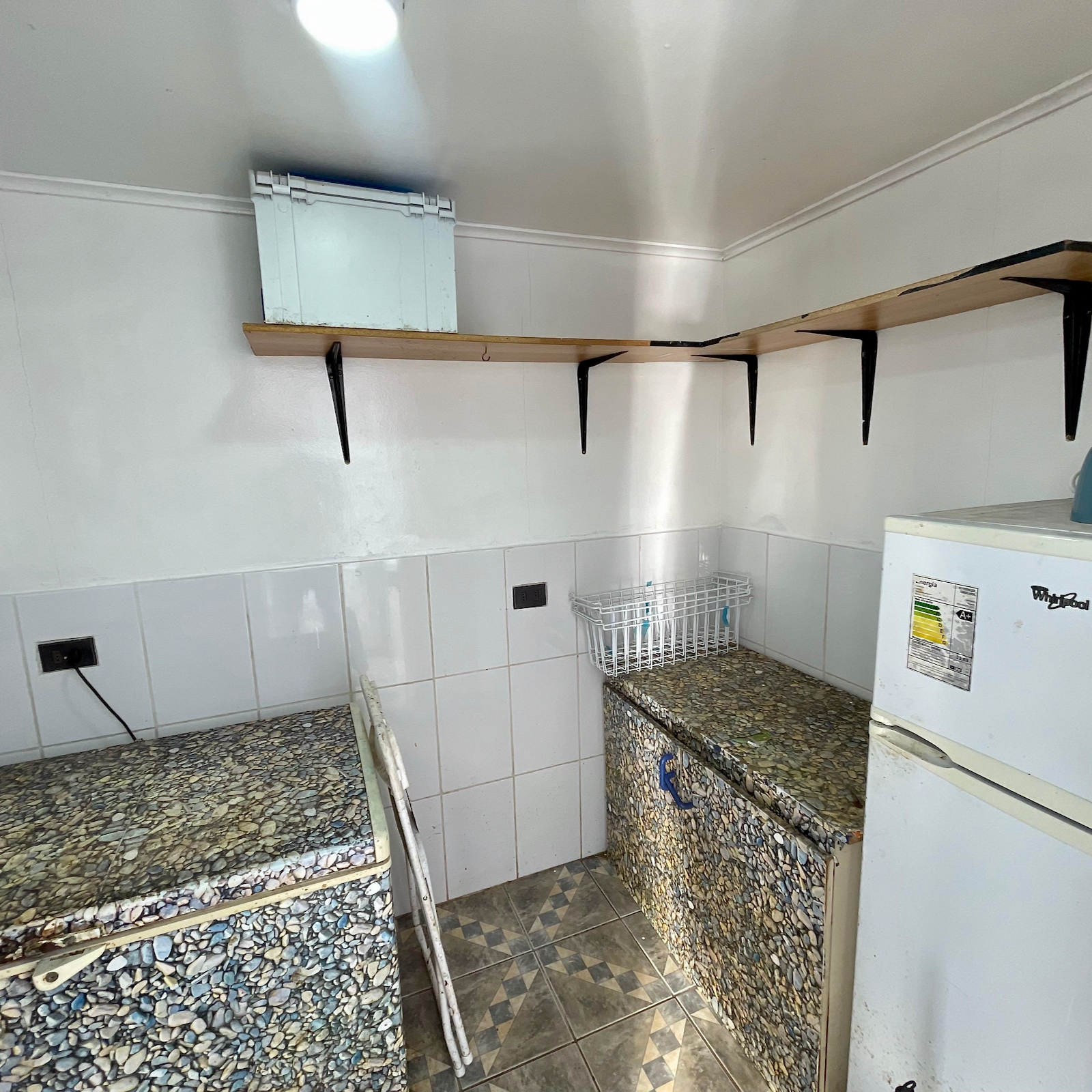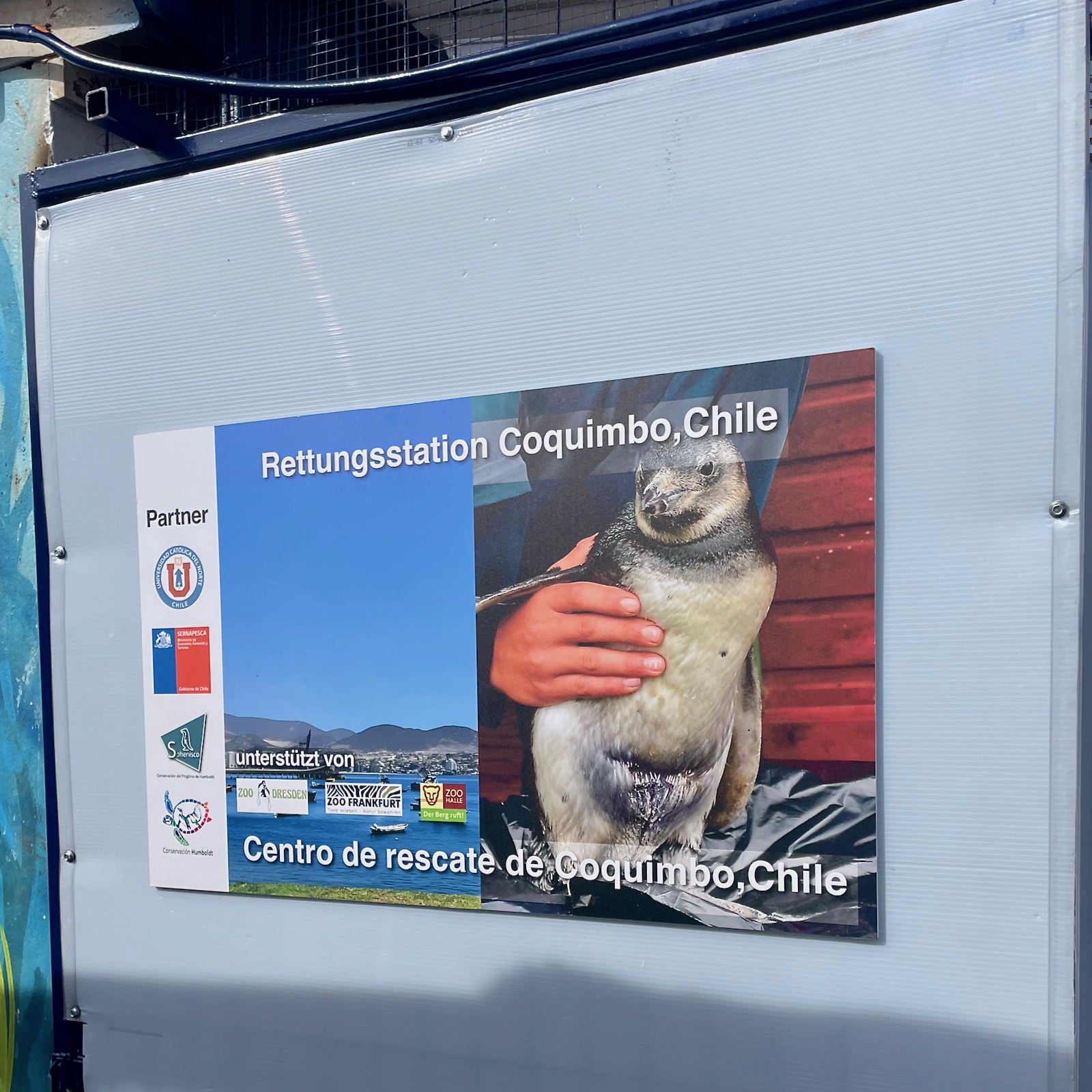Landau, August 8, 2025. In May of this year, the Universidad Católica del Norte-UCN (1), Sernapesca (2) in the Coquimbo region, Sphenisco, and the NGO Conservación Humboldt decided to renovate the marine animal rescue center on the university grounds and operate it jointly. Sphenisco committed to covering the costs of the renovation and operation for one year. The project is supported by Frankfurt Zoo, Halle Mountain Zoo, and Dresden Zoo.
At the start of construction on June 23, Tomás Pino, president of the NGO Conservación Humboldt and responsible for renovation and operations, wrote: "With warm regards we would like to share some excellent news with you: Construction work on the Center for the Rescue and Rehabilitation of Wild Animals on the Sea Coast has officially begun. Attached please find some photos showing the current status of the construction work. ... We sincerely thank you for your extraordinary support and continued interest, which has been crucial in making this project a reality. We will continue to keep you informed of all important progress and send you images so that you can feel part of this significant undertaking even from afar."
Gerado Cerda-Gaete, head of the Department of Nature Conservation and Biodiversity at Sernapesca (2) and initiator of the project, wrote: “Have no doubt that I will continue to be committed to this project. I look forward to the renovation of the rehabilitation center and the start of its operations.”
Between June 23 and August 5, Servicios e Ingeniera Cofre (Cofre Services and Engineering) carried out all the necessary work. The old structure of the station was completely removed, new foundations were laid, and two compounds for injured marine animals and treatment rooms were built. One area, known as the “large construction,” has two water basins, with the second basin also providing space for sea turtles. The basin, which is sunk into the ground, is supplied directly with seawater. Another area was designed for the care of penguins and sea lions. This compound also has a basin with a seawater supply. The quarantine area is completely isolated from the rest of the station. The workroom for medical procedures is equipped with a stainless steel table. Medicines and consumables can be stored safely in the “nursing” rooms, which have a freezer and a refrigerator.
The rescue station is located at the rear of the aquarium at the Universidad Católica del Norte. Its location provides a direct link to scientific and maritime institutions. The station is clad with opaque polycarbonate panels to protect the “patients” from disturbance by visitors to the aquarium.
The NGO Conservación Humboldt is currently hiring specialist staff and procuring medicines and consumables so that injured and sick animals can be treated as soon as possible.
W.K.
translated by Angelika Veelken using and reviewing deepl.com
Notes
For better readability, the generic masculine form is used in this article. Unless otherwise indicated, the personal pronouns used in this article refer to all genders.
(1) Catholic University of the North
(2) Servicio Nacional de Pesca y Acuicultura de la Región de Coquimbo - National Service for Fisheries and Aquaculture of the Coquimbo Region



